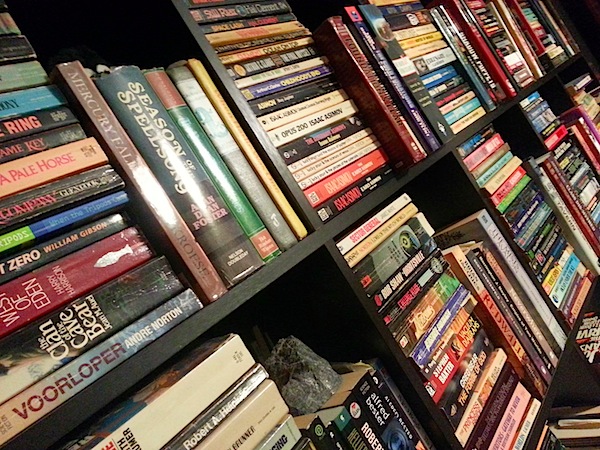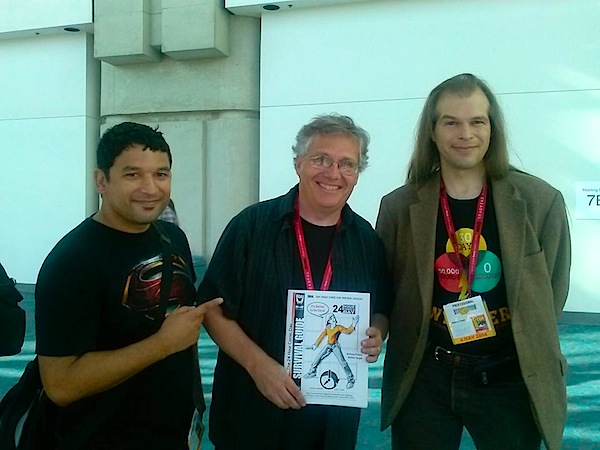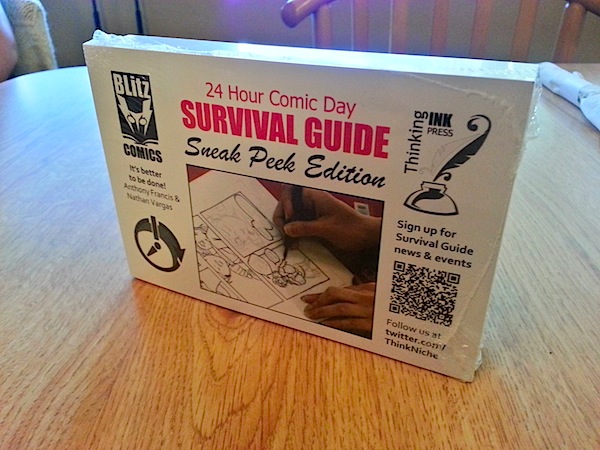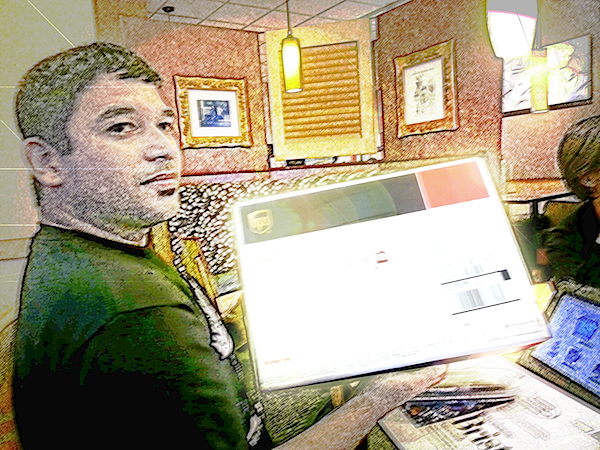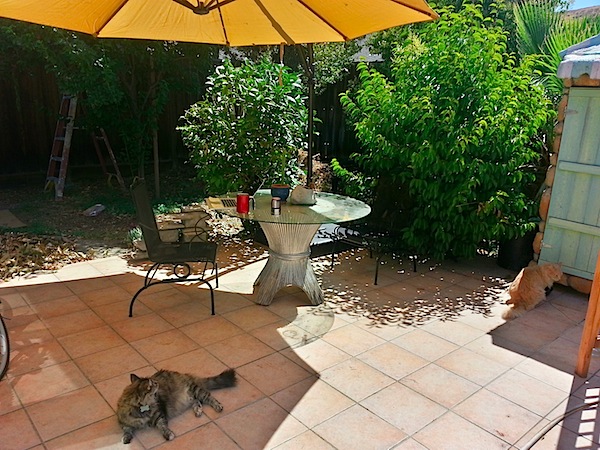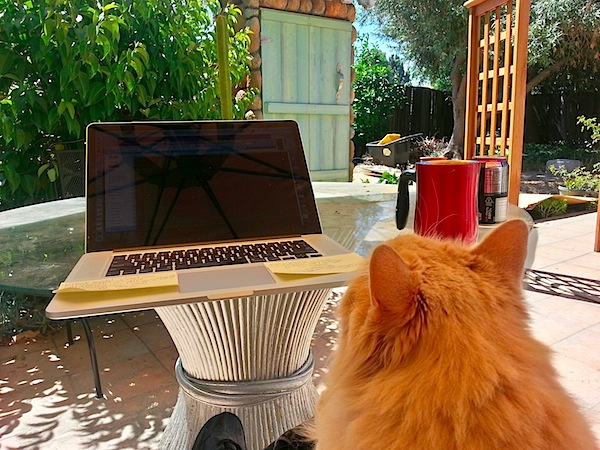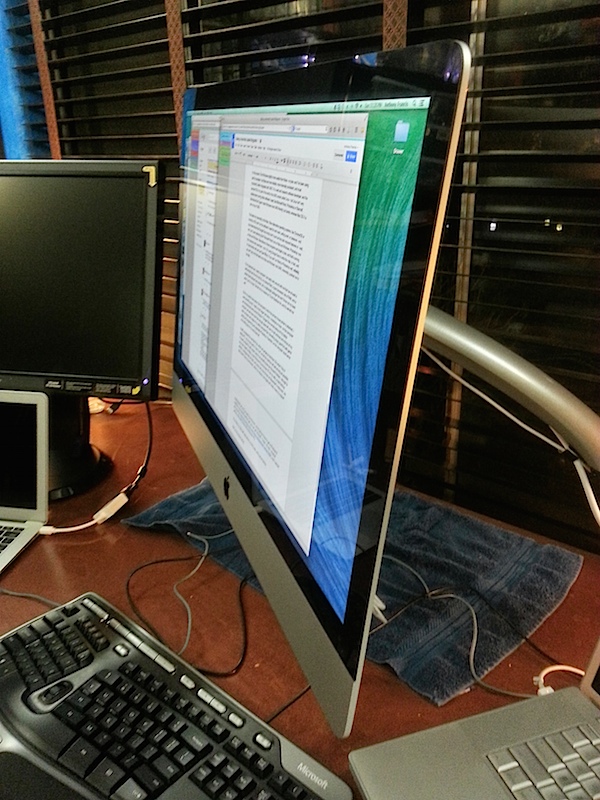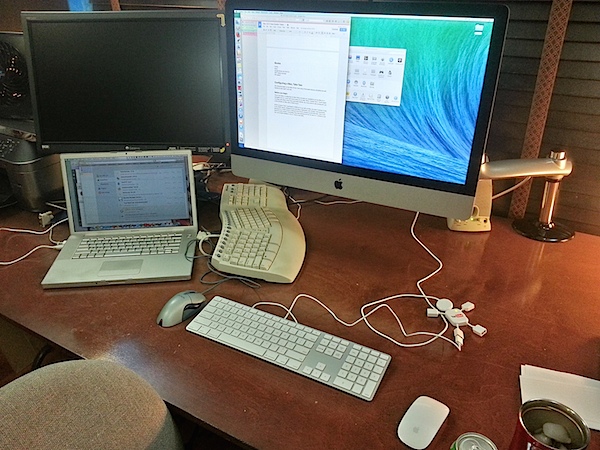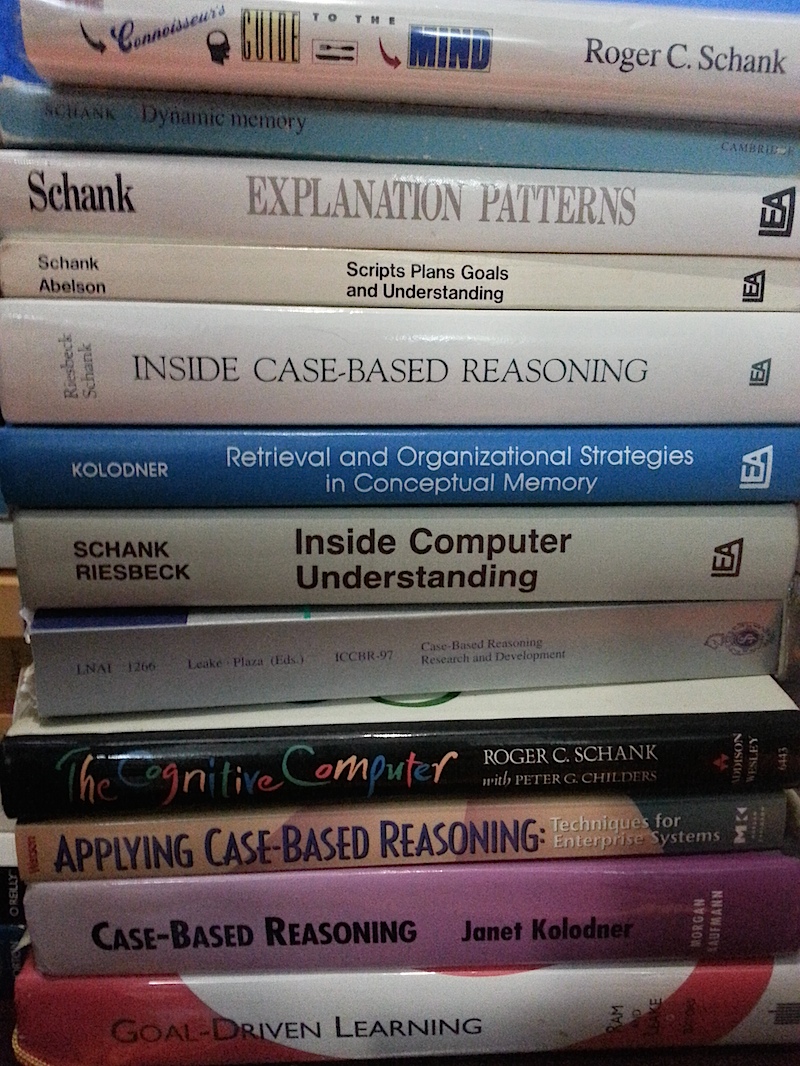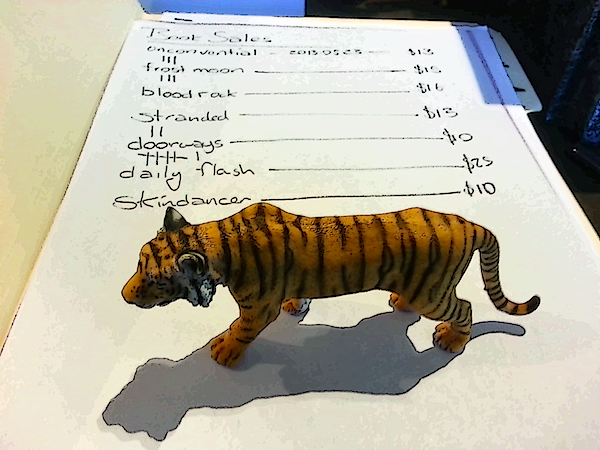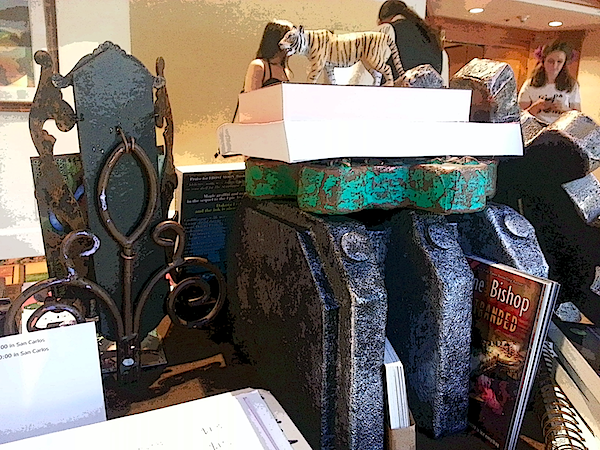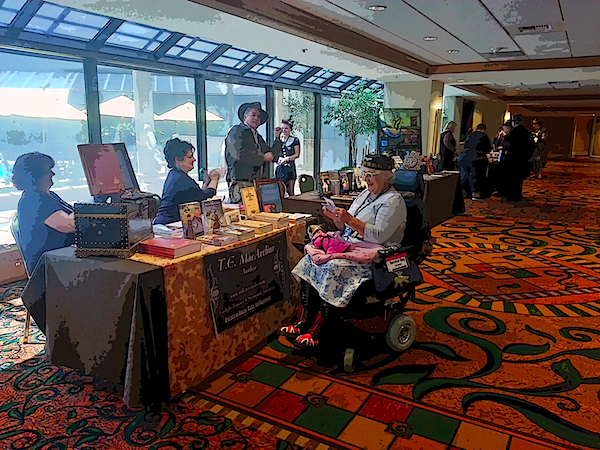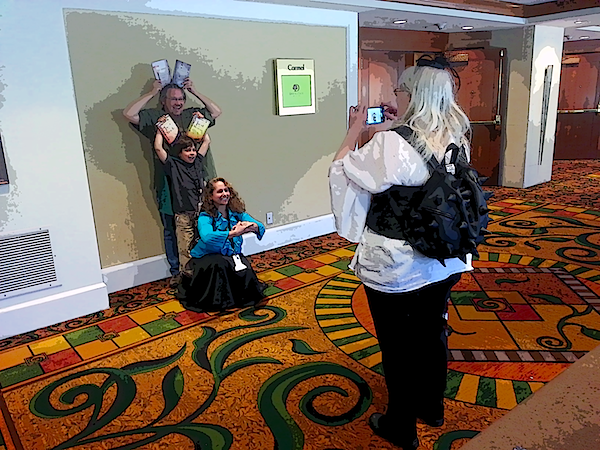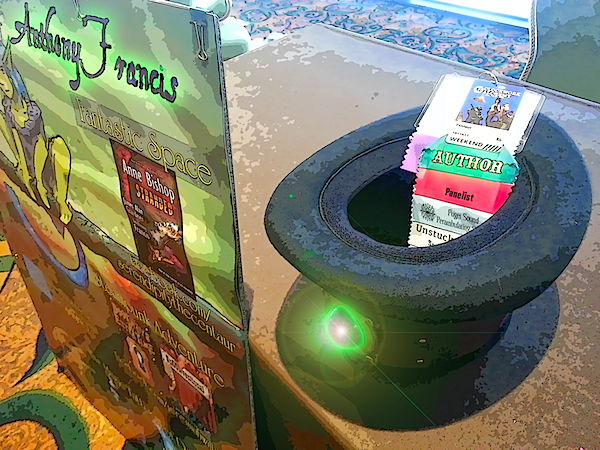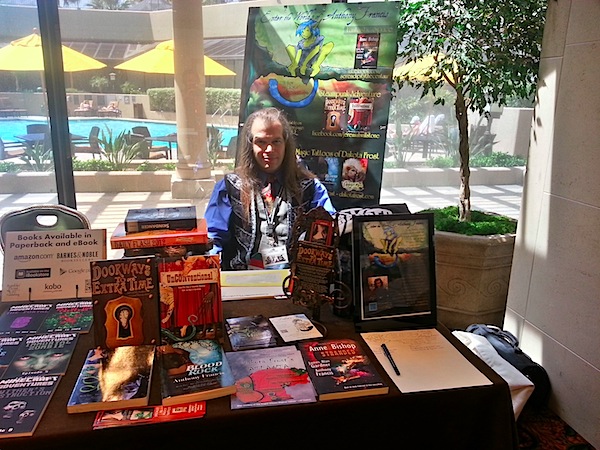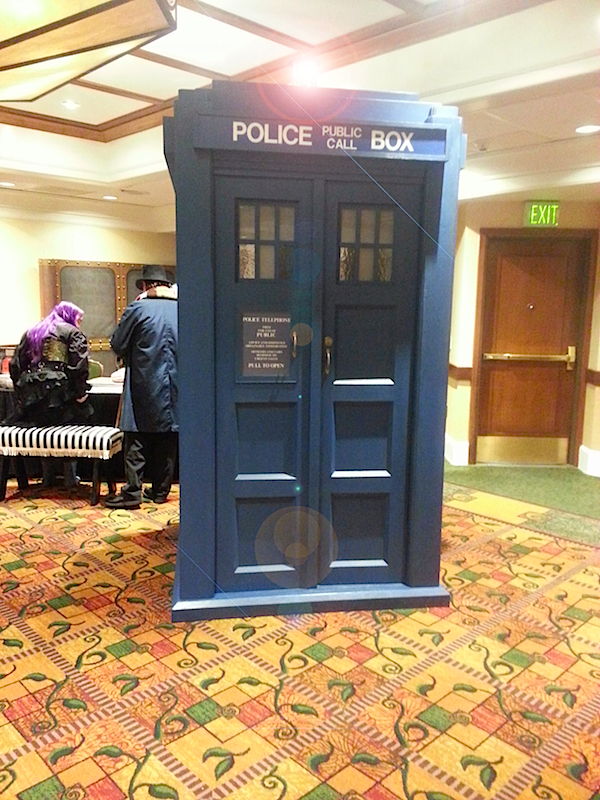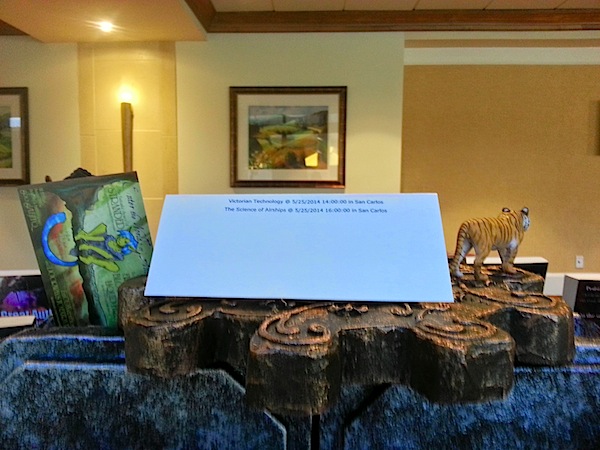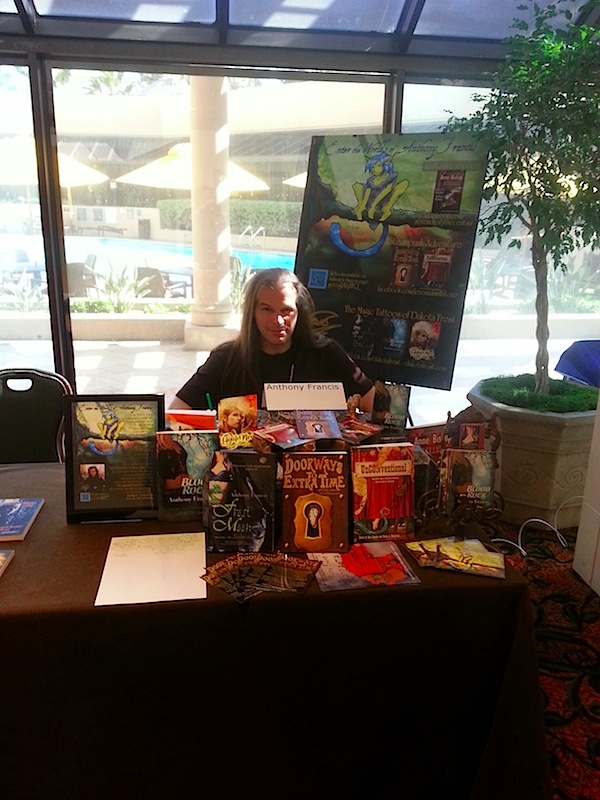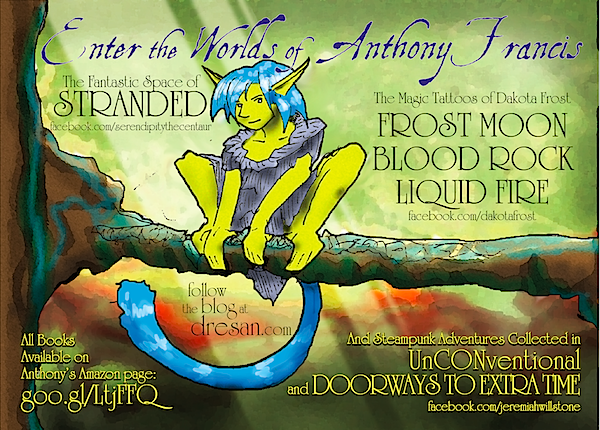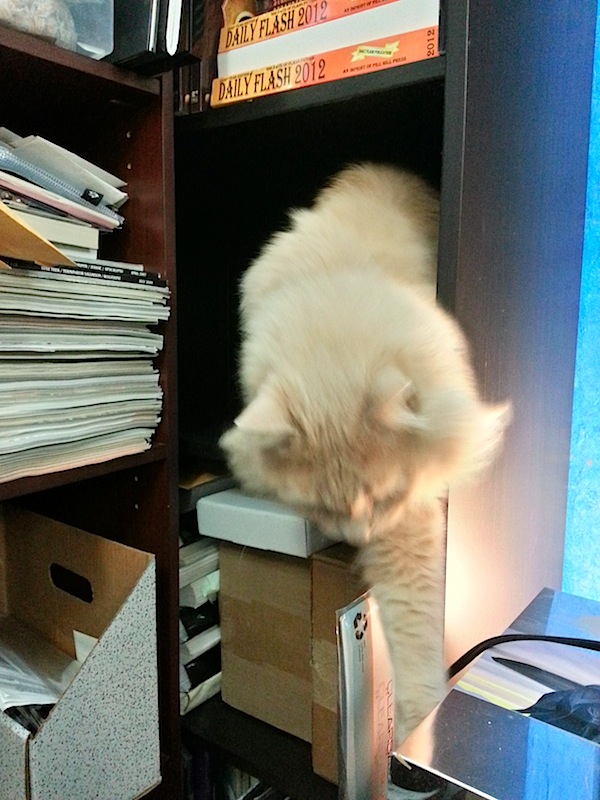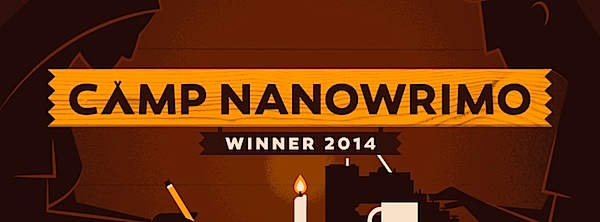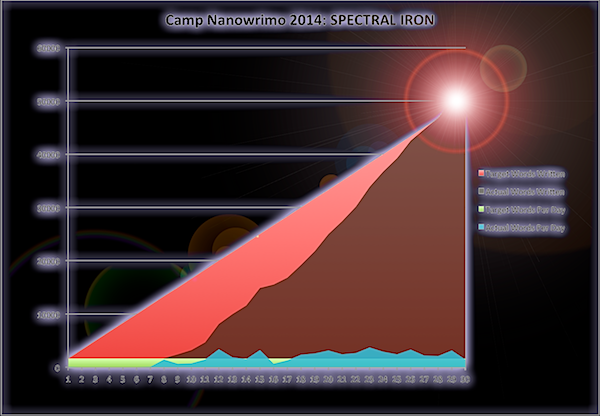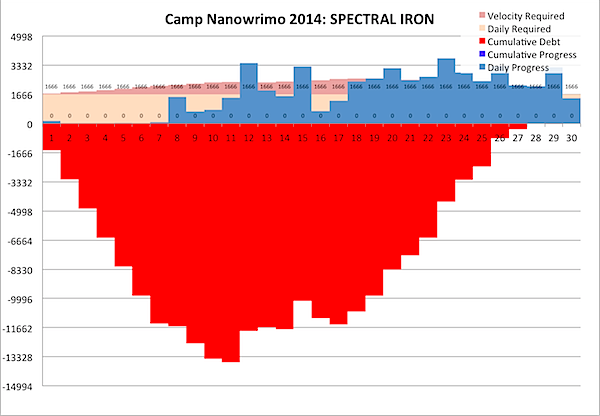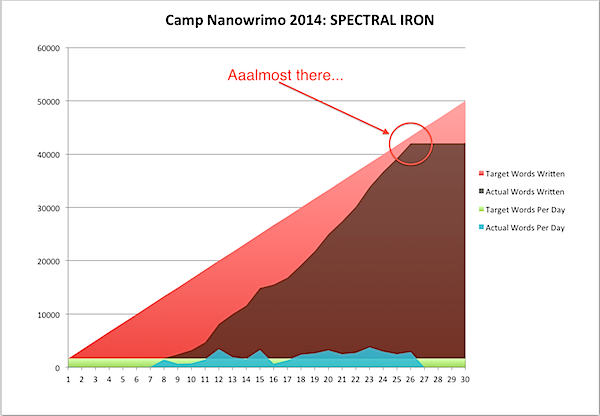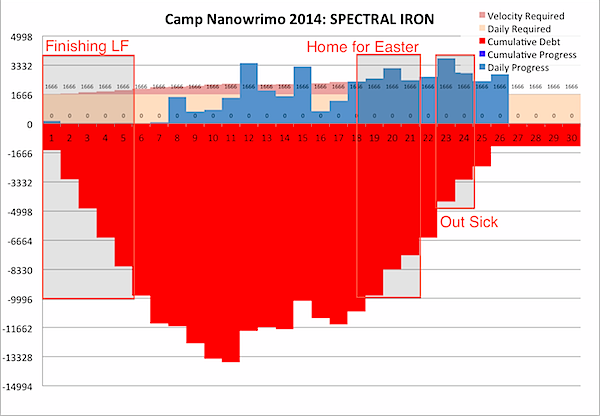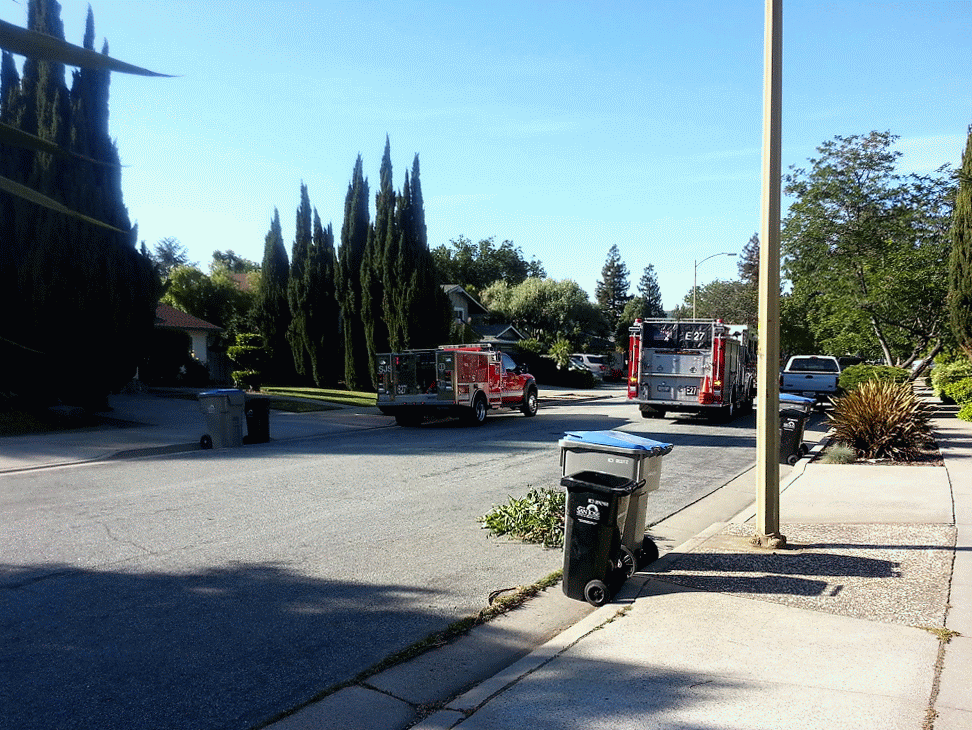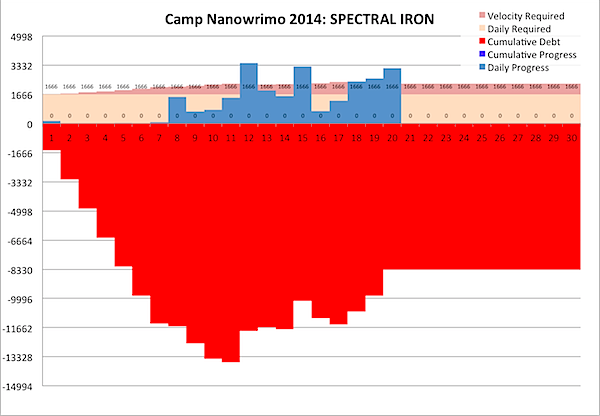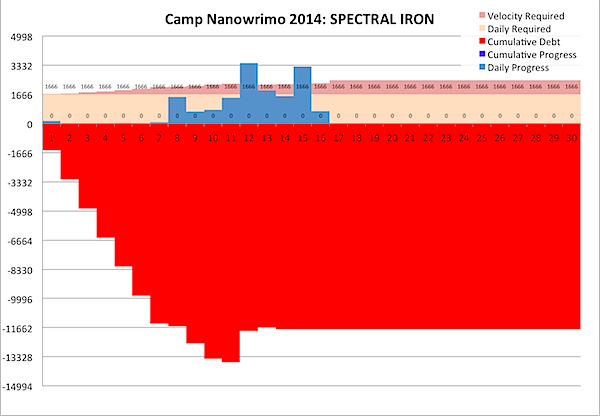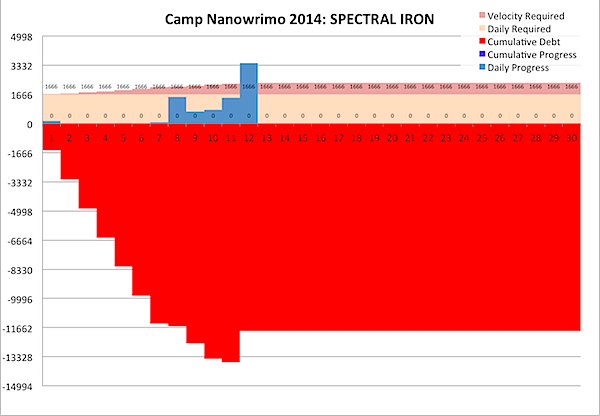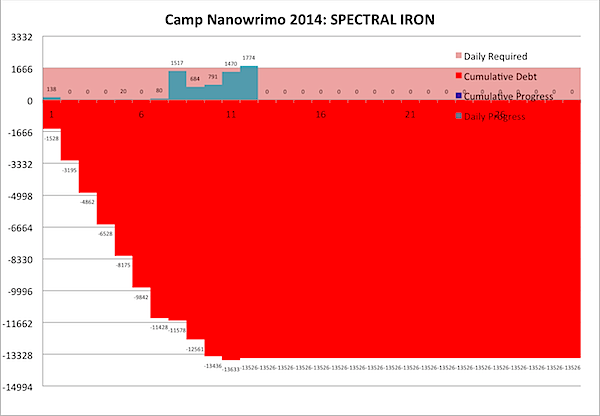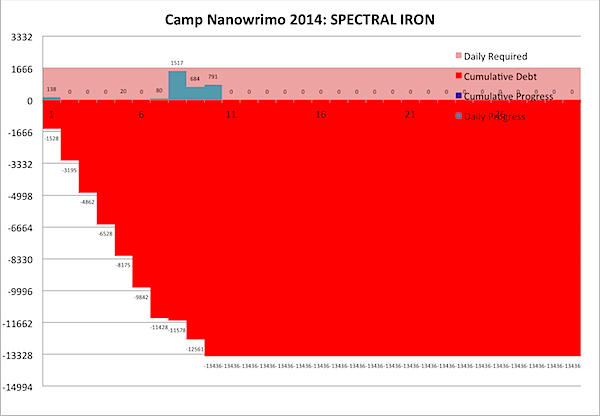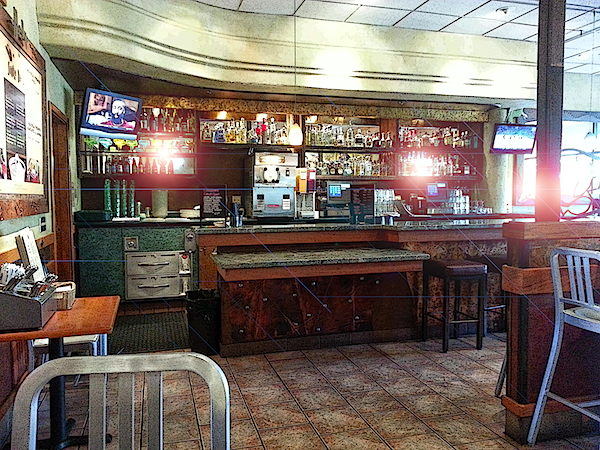
I'm a regular at many places - restaurants, cafes, bookstores. I'm a regular because I like good ruts - where you find something that works, like going to a good restaurant, with healthy food and clean tables suitable for working on your laptop, and located near your house and next to the bank and pet food store. When I find a good rut, I stick to it, so I hit the same places a lot.
And I'm friendly to the staff at these places, because I admire my father, who could be friendly to anyone, and because I'm a follower of Jesus, and I interpret his teachings to mean that everyone you meet is a person, and is just as valuable a person as you yourself are, and that you should treat them as you wish you should be treated.
So I get to know the staff, and often become friends with them. So while waiting for my food at Aqui Blossom Valley, one of my favorite restaurants (because it has healthy food and clean tables and … oh, heck, it's the one I was talking about above, interpolate that description), I saw one of the staff, a busser turned part-time bartender, and walked over to say hello.
We talked for a while, and I asked if he wanted to become a full-time bartender. He hesitated a moment, then said yes. He said that bartending is faster paced than bussing tables, but unlike bussing, everything you need to do is right there at your workstation. There's no circling the restaurant, then the kitchen, then the storeroom, then the restroom: it's all right there.
Yes, but sometimes the line gets long, I said. And then my eponymous friend behind the counter said something interesting:
There's always a line.
The line at the bar at Aqui can get intense on the evenings and weekends, easily a dozen people deep. But in his training, the bartender said that his trainers warned him that there would always be a line - and that he should do his best to ignore it. They told him to work at his own pace, because if you hurry up to get ahead, you'll screw up and fall behind.
Early on in his training, he said, he would see the line stack up and tried to pick up the pace so he could get ahead. But when he did so, he found himself forgetting ingredients, ending up short, or mixing up the order. On one occasion, his shadow trainer looked at the drink, shook his head, and said "Pour it out and start over."
From then on, he worked at his own pace, focusing on the order at hand, and it's worked better for him.
There's a lot of wisdom here. First, in the staff of Aqui, who train people for their positions, who shadow them to provide advice, and instruct them in how their jobs really work to be efficient, rather than trying to create the perception of efficiency by ordering the staff to rush and then screaming at them when they fall behind, as happens at so many other less successful restaurants.
But I perhaps I paid attention to that lesson because I'm a professional in the software industry - and, in my mind, a professor-in-training, learning how software really works so that one day I can go back to academia and help train the next generation to be better software engineers - and I'm always analyzing workplace environments and what makes them work … or not.
But the lesson that "There's always a line" is more general. You always have a line of tasks stacked up in front of you: each day you need to get up, dress, breathe, drink, eat, excrete, and sleep, and you have a thousand other tasks besides. You never stop wearing clothes or eating or excreting, so you'll always need to make sure you have laundry, good food and toilet paper.
But for any more complex tasks, there's usually a right way and a wrong way to do it. When you're a novice, you may fumble around, but once you become expert, there's a system. You may improve the system, you may try to perfect it - but if you get in a hurry and you skip steps, you can make mistakes, and be far worse off than you started with.
Software is particularly vulnerable to this - mistakes found early in the process, say when you decide what you want, can be easy to fix, just by changing direction. Once a design is started it gets harder to fix mistakes, and even harder when there's code. By the time you get to deployment, the costs skyrocket: according to NASA, mistakes in operation can be 1500 times as expensive.
I guess they would know. NASA lost a third of a billion dollars to a software glitch, when the Mars Climate Orbiter, which had inadequately tested software mixing English System and Metric units, misjudged its altitude - and even though the error was noticed in advance and a team met to discuss it, they skipped the course correction maneuver, causing the Orbiter to crash.
So remember: there will always be a line. Hurrying up to get ahead can lead to mistakes, which can put you behind … or, hey, lead to your fiery death on re-entry, and the ignominious legacy of being used forevermore as a warning and example to others of how not to conduct your business.
So ignore the line, take your time, and get it right.
-the Centaur
Pictured: the bar at Aqui, not yet open ... so not yet having a line. ;-D
